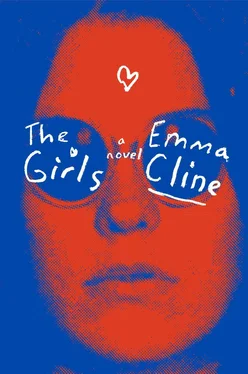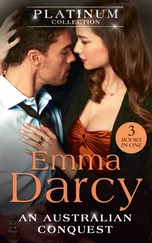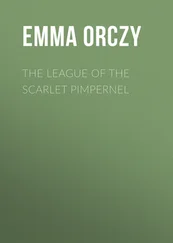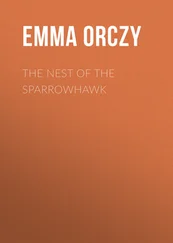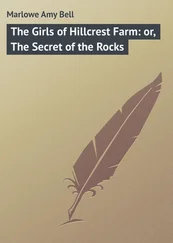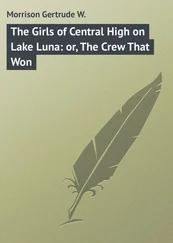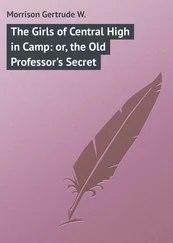There were three other girls in the bus, and they turned to me with eagerness, a feral attention I read as flattering. Cigarettes going in their hands while they looked me up and down, an air of festivity and timelessness. A sack of green potatoes, pasty hot dog buns. A crate of wet, overripe tomatoes. “We were on a food run,” Donna said, though I didn’t really understand what that meant. My mind was preoccupied with this sudden shift of luck, with monitoring the slow trickle of sweat under my arms. I kept waiting to be spotted, to be identified as an intruder who didn’t belong. My hair too clean. Little nods toward presentation and decorum that seemed to concern no one else. My hair cut crazily across my vision from the open windows, intensifying the dislocation, the abruptness of being in this strange bus. A feather hanging from the rearview with a cluster of beads. Some dried lavender on the dashboard, colorless from the sun.
“She’s coming to the solstice,” Donna chimed, “the summer solstice.”
It was early June and I knew the solstice was at the end of the month: I didn’t say anything. The first of many silences.
“She’s gonna be our offering,” Donna told the others. Giggling. “We’re gonna sacrifice her.”
I looked to Suzanne — even our brief history seemed to ratify my presence among them — but she was sitting off to the side, absorbed by the box of tomatoes. Applying pressure to the skins, sifting out the rot. Waving away the bees. It would occur to me later that Suzanne was the only one who didn’t seem overjoyed to come upon me, there on the road. Something formal and distant in her affect. I can only think it was protective. That Suzanne saw the weakness in me, lit up and obvious: she knew what happened to weak girls.
—
Donna introduced me around, and I tried to remember their names. Helen, a girl who seemed close to my age, though maybe it was just her pigtails. She was pretty in the youthful way of hometown beauties, snub-nosed, her features accessible, though with an obvious expiration date. Roos. “Short for Roosevelt,” she told me. “As in, Franklin D.” She was older than the other girls, with a face as round and rosy as a storybook character.
I couldn’t remember the name of the tall girl who was driving: I never saw her again after that day.
Donna made a space, patting the nub of an embroidered cushion.
“Come here,” she said, and I sat down on the itchy pile. Donna seemed odd, slightly oafish, but I liked her. All of her greed and pettiness was right on the surface.
The bus lurched forward: my gut went jostled and tight, but I took the jug of cheap red wine when they passed it, splashing out over my hands. They looked happy, smiling, their voices sometimes breaking into snippets of song like campers around a fire. I was picking up the particularities — how they held hands without any self-consciousness and dropped words like “harmony” and “love” and “eternity.” How Helen acted like a baby, pulling on her pigtails and talking in her baby voice, abruptly sinking into Roos’s lap like she could trick Roos into taking care of her. Roos didn’t complain: she seemed stolid, nice. Those pink cheeks, her lank blond hair falling in her eyes. Though later I’d think maybe it was less niceness than a muted void where niceness should be. Donna asked me about myself, and so did the others, a constant stream of questions. I couldn’t help my pleasure at being the focus of their attention. Inexplicably, they seemed to like me, and the thought was foreign and cheering, a mysterious gift I didn’t want to probe too much. I could even cast Suzanne’s silence in a welcoming light, imagining she was shy, like me.
“Nice,” Donna said, touching my shirt. Helen pinched a sleeve, too.
“You’re just like a little doll,” Donna said. “Russell’s gonna love you.”
She tossed out his name just like that, as if it were unimaginable that I might not know who Russell was. Helen giggled at the sound of his name, rolling her shoulders with pleasure, like she was sucking on a sweet. Donna saw my blink of uncertainty and laughed.
“You’ll love him,” she said. “He’s not like anyone else. No bullshit. It’s like a natural high, being around him. Like the sun or something. That big and right.”
She looked over to be sure I was listening, seemed pleased that I was.
She said that the place we were headed was about a way of living. Russell was teaching them how to discover a path to truth, how to free their real selves from where it was coiled inside them. She talked about someone named Guy, who’d once trained falcons but had joined their group and now wanted to be a poet.
“When we met him, he was on some weird trip, just eating meat. He thought he was the devil or something. But Russell helped him. Taught him how to love,” Donna said. “Everyone can love, can transcend the bullshit, but so many things get us all stopped up.”
—
I didn’t know how to imagine Russell. I had only the limited reference point of men like my father or boys I’d had crushes on. The way these girls spoke of Russell was different, their worship more practical, with none of the playful, girlish longing I knew. Their certainty was unwavering, invoking Russell’s power and magic as though it were as widely acknowledged as the moon’s tidal pull or the earth’s orbit.
Donna said Russell was unlike any other human. That he could receive messages from animals. That he could heal a man with his hands, pull the rot out of you as cleanly as a tumor.
“He sees every part of you,” Roos added. As if that were a good thing.
The possibility of judgment being passed on me supplanted any worries or questions I might have about Russell. At that age, I was, first and foremost, a thing to be judged, and that shifted the power in every interaction onto the other person.
The hint of sex that crossed their faces when they spoke of Russell, a prom-night giddiness. I understood, without anyone exactly saying so, that they all slept with him. The arrangement made me blush, inwardly shocked. No one seemed jealous of anyone else. “The heart doesn’t own anything,” Donna chimed. “That’s not what love is about,” she said, squeezing Helen’s hand, a look passing between them. Even though Suzanne was mostly silent, sitting apart from us, I saw her face change at the mention of Russell. A wifely tenderness in her eyes that I wanted to feel, too.
I may have smiled to myself as I watched the familiar pattern of the town pass, the bus cruising through shade to sunshine. I’d grown up in this place, had the knowledge of it so deep in me that I didn’t even know most street names, navigating instead by landmarks, visual or memorial. The corner where my mother had twisted her ankle in a mauve pantsuit. The copse of trees that had always looked vaguely attended by evil. The drugstore with its torn awning. Through the window of that unfamiliar bus, the burr of old carpet under my legs, my hometown seemed scrubbed clean of my presence. It was easy to leave it behind.
—
They discussed plans for the solstice party. Helen up on her knees, tightening her pigtails with happy, brisk habit. Thrilling while they described the dresses they’d change into, some goofy solstice song Russell had made up. Someone named Mitch had given them enough money to buy alcohol: Donna said his name with a confusing emphasis.
“You know,” she repeated. “Mitch. Like Mitch Lewis?”
I hadn’t recognized Mitch’s name, but I’d heard of his band — I’d seen them on TV, playing in the hot lights of a studio set, sweat needling their foreheads. The background was a shag of tinsel, the stage revolving so the band members turned like jewelry-box ballerinas.
I affected nonchalance, but here it was: the world I had always suspected existed, the world where you called famous musicians by their first names.
Читать дальше
